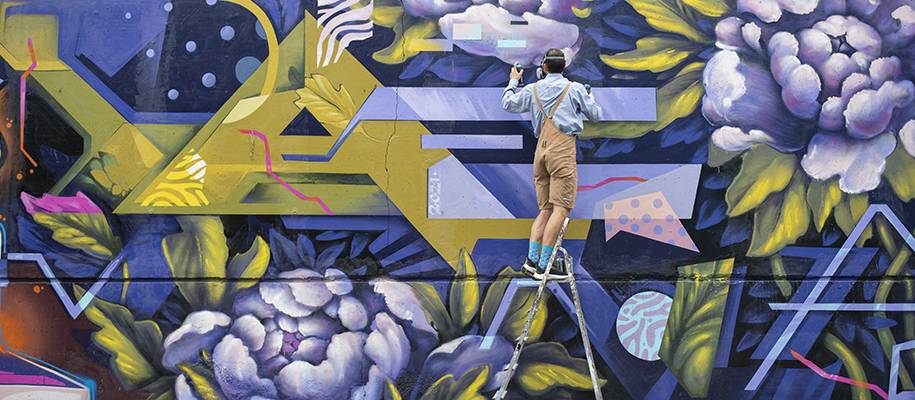When I think about how often people have questioned my being an artist and how I make a living, it’s a little ridiculous. Parents have often asked me to talk to their students about being a professional artist, but usually, their undertone is one of “Please tell them it’s a bad idea.” Often when I meet people and tell them I'm an artist, they say things like “I thought about being an artist, but I wanted to make a real living.” And as a professor, students tell me all the time that their families don’t want them to be Art majors.
All these questions and comments are tied to the misconception of the “starving artist.” And while there are unique and challenging realities to choosing art as a career, I find most people aren’t aware of how realistic it can be. You learn skills as an artist that can transfer into any career of your choosing. And “making it” as an artist doesn’t have to mean becoming the next Picasso. Here's what to know about how art prepares you with valuable skills and business acumen that you can turn into a successful career.
Art teaches you invaluable skills
Making art is often about problem solving and critical thinking, which are among the most important and employable skills you can possess. Just ask any hiring manager! Whether you’re learning your art in a traditional college setting, apprenticeship, or internship or you're creating work on your own, you’ll also gain an ability to communicate clearly with others. You will inevitably have to talk or write about your art (especially as a college student), and strong communication skills are also incredibly important.
Art can help you land other careers
There are plenty of statistics about how many people with art degrees are making a living in the field, but they don’t often take into account those people with more traditional careers who still directly benefit from their art background and experience as artists. I know a lot of artists. Many of them are directors, technicians, coordinators, grant writers, designers, and teachers as well as artists by trade—and they use what they learned as an artist to support these other positions. So even if you decide not to become a full-time artist, you can still benefit from studying art in college to help you get a job when you graduate.
Related: Unique Careers for Visual Arts Students to Consider
Being an artist is like owning a small business
Let's say you do decide to become a professional artist. Making a living with your art can indeed mean some sacrifices that others may not understand or find acceptable. You might work long or unpredictable hours which can result in a feeling of instability. It all becomes normalized after a while, being an artist becomes a part of everything you do. Although it still might seem unconventional when you talk to your friends about traditional jobs. Not to mention the emotional aspect of putting this piece of yourself out there for the world to judge.
To get to where I am in my career, I worked hard. For me, a normal week might mean spending 80 hours in the ceramic studio making work, and this doesn’t include the time I spend outside the studio doing things to promote and manage my work, like building a portfolio and advertising on social media. Being an artist isn't so different than any other small business owner—including the associated complicated costs and benefits. Ultimately, what I get from this career is the ability to work for myself, to be in control of my life, doing something I love. That’s worth it to me, and maybe it will be to you too.
Related: Get Real! Myths and Advice About Arts Majors and Careers
So to all those who question getting an Art degree in college and pursuing a career in the arts, my answer is this: I learned about myself and how to succeed professionally by being an artist. And isn’t that the point? Don't let the negative perceptions of others deter you from pursuing a rewarding career in the arts. You can make a career of it, and it does provide you with valuable skills for the real world even if you pursue a career elsewhere with your experience in the arts.




